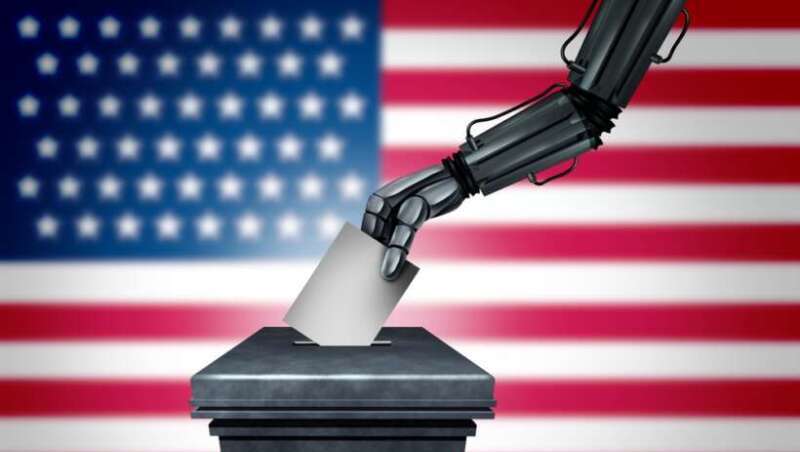
Two of the biggest threats to the smooth functioning of the upcoming U.S. elections stem from potential misuse of artificial intelligence technologies along with ongoing efforts by foreign adversaries to sow distrust and confusion about election processes.
The AI and foreign adversary threats were singled out – along with threats to election workers – by U.S. Deputy Attorney General Lisa Monaco during an Aug. 2 address to the American Bar Association in Chicago.
Speaking of the work of ABA’s task force on American democracy, Monaco said those efforts come “at a crucial moment – at a time when our democracy is facing a test of its mettle — by threats of violence, foreign influence, and false information fueled by AI.”
“But we have confronted challenging periods before and persevered,” she said.
On the new technology front, Monaco said that “perhaps the most disruptive and novel threat to our democratic process comes from the misuse of AI.”
Misuse of the technology, she said, may take the form of threatening election workers, allowing bad actors to hide their identities, providing “new avenues to misinform and threaten voters through deepfakes that contain altered video or cloned audio,” and fostering “new methods to recruit and radicalize, with incendiary social media content and online harassment and hate.”
The Justice Department’s pushback on those threats, Monaco said, includes its action last month to seize domain names being used in Russian-backed efforts to “create an AI-enhanced social media bot farm that spread disinformation in the United States and abroad.”
In discussing foreign government threats to U.S. elections, Monaco called out each of Russia, China, and Iran for what she said are ongoing efforts to influence the election process, and pointed back to last week’s warning from the Office of the Director of National Intelligence (ODNI) that a “range of foreign actors” are “conducting or planning influence operations” that target U.S. elections.
“Foreign malign influence is not a new problem – but today’s complex geopolitical environment, and the anonymity and access our interconnected world offers, change the nature of the threat and how we must address it,” Monaco said, emphasizing that “malign foreign influence operations can take many forms — false personas, fabricated and divisive narratives, and synthetic content disseminated through technology like deepfakes.”
For its part, Russia “remains the predominant foreign threat to our elections,” Monaco said, and is trying to manipulate election outcomes by targeting specific voter demographics and swing-state voters, as well as co-opt “unwitting Americans on social media to push narratives advancing Russian interests.”
“We know from recent intelligence that Iran is also accelerating its efforts” at election influence, Monaco said, asserting that “relying on vast webs of online personas and propaganda, Iranian government actors are using the Israel-Gaza conflict as kerosene to fuel tensions on social media – with some even creating accounts posing as activists and calling for protests.”
“China looms large as well,” the DoJ official said. “Intelligence shows that PRC [People’s Republic of China] influence actors are using social media to portray democracies as chaotic and to sow division in the United States.”
“The PRC hopes to expand its ability to collect and monitor Americans’ data on our social media platforms, to better understand – and eventually manipulate – public opinion,” Monaco said.
Finally, Monaco said that threats against election workers are on the rise. Of the nearly 700 threats cases that the Justice Department has prosecuted over the past two years, “more than half of those threats — about 400 — have targeted federal and state public officials, judges, prosecutors, law enforcement officers, and election workers,” she said.
